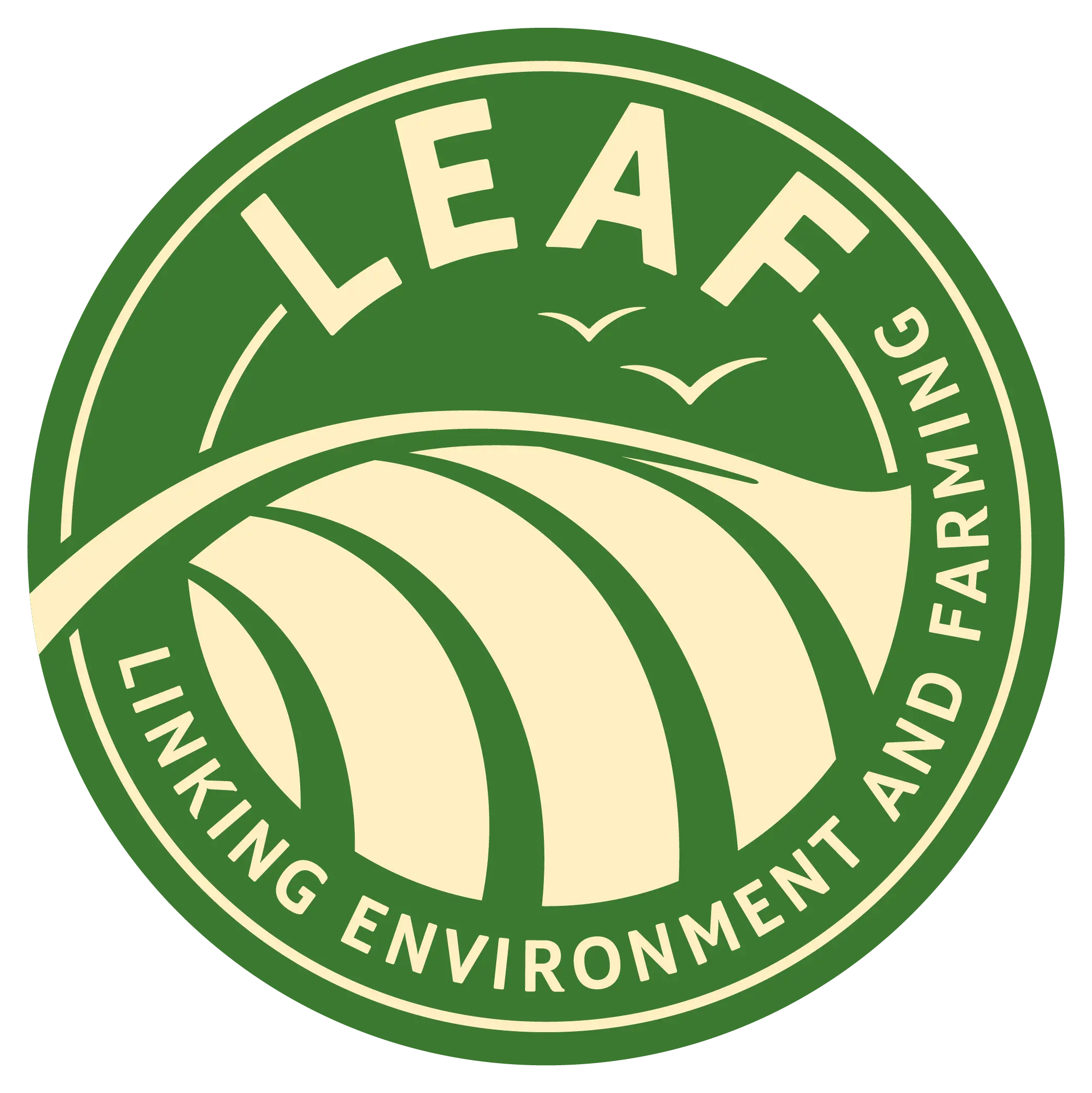- About Integrated Farm Management
- LEAF Network
- Resources
- LEAF Speak Out Toolkit
- LEAF Sustainable Farming Review
- Training
- LEAF Endorsed Advisors & Consultants
- Our Projects & Partnerships
- Nature Based Solutions to Climate Change
- Beacons of Excellence
- Resilient & Ready
- Accelerating & Demonstrating the Journey to Net-Zero
- About LEAF Marque
- The LEAF Marque Standard
- Setting the Standard
- Our impact
- Your Feedback
- Working with Certification Bodies
- LEAF Marque Champions
- Benchmarking & Equivalence
- For Farmers & Growers
- Public Consultation
- Farmer & Grower Help Centre
- Claims & Labelling
- Documents & Downloads
- News & Notices
- Training
- For Teachers & Educators
- What we offer
- Our Competitions
- Classroom activities and resources
- Case Studies
- For Farmers & Businesses
- How to get involved
- Hosting farm visits
- Accredited training
- Activity and Networking Days
- Seminars & Workshops
- About Us
- Membership
- Our Impact
- LEAF Education Specialists
- Contact Us
- Our Research
LEAF Guidance notes on pollinating insects and bees
These guidance notes set out the views of LEAF on the decline of pollinating insects and in particular the sudden and dramatic fall of honey bee populations and its potential threat to agriculture. They also provide some practical points on minimising impacts associated with farming activities, plus creating and maintaining wildlife habitats for pollinating insects.
Pollination, the transfer of pollen from one flower to another, is critical to fruit and seed production, and is regularly provided by insects and other animals on the hunt for nectar, pollen or other floral rewards. In doing so, pollinating insects perform a vital ecological and economic role. It is estimated that pollinating insects contribute £200 million to UK agriculture, pollinating key crops such as top and soft fruit, field, runner and broad beans, oilseed rape and linseed crops. Therefore pollinating insects and in particular honey bees are of paramount importance to meeting modern agriculture’s peak pollination requirements. Graminae species e.g maize, cereals, rice etc have no insect pollinating requirement as they are wind pollinated.
Dramatic declines in managed honey bee populations (so-called Colony Collapse Disorder) both globally and in particular throughout North America have been reported over the last 3 years. Recently published evidence in the UK suggests that the number of insect pollinators have fallen. The British Bee Keepers Association (2009) reported almost a 20% decline by the end of the 2008/09 winter which followed a 33% fall in honey bee colonies by the end of the winter 2007/08. The potential impact of these declines on agriculture may yet to be realised.
Read full statement here.
Here is a link to LEAF’s guide to pollinating insects for farmers.
